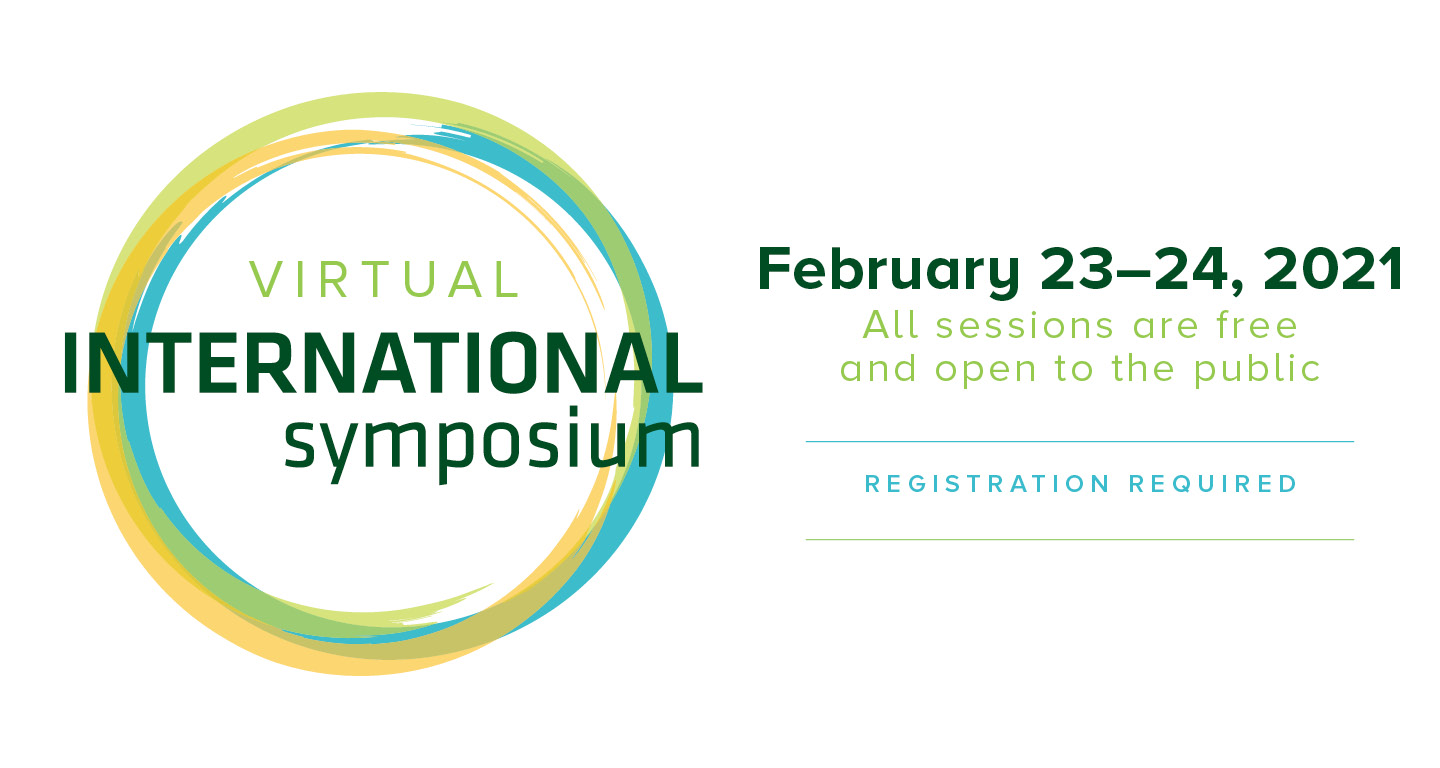
This year’s International Symposium, held virtually Feb. 23-24, will feature panel discussions on topical international issues which impact the United States and the world in increasingly palpable ways. The two keynote speakers and six sessions at the symposium will cover climate change, pandemics and emerging infectious disease, foreign relations, diversity and international education, innovation, and global engagement in higher education.
All sessions will be free and open to the public, but registration is required.
The International Symposium, organized by the Office of International Programs, will feature two excellent keynote presentations. The first will be on Tuesday, Feb. 23, 2-3 p.m., with Mexican Ambassador to China Jorge Guajardo speaking with reporter Julián Aguilar.
From 2007 to 2013, as ambassador, Guajardo visited every province and established close relationships with China’s business community. Through his reporting, moderator Julián Aguilar focuses on immigration reform and enforcement, politics, international trade, border security, and the drug trade. You can register for this keynote on Zoom.
The second keynote speaker will be U.S. Ambassador Ryan Crocker about the future of diplomacy, Wednesday, Feb. 24, 1:30-2:30 p.m. In this talk, Ambassador Crocker will cover where U.S. diplomacy is headed under the Biden administration.
Crocker is currently a diplomat in residence at Princeton University and has served as U.S. ambassador six times: Afghanistan, Iraq, Pakistan, Syria, Kuwait, and Lebanon. In 2009, Crocker received the Presidential Medal of Freedom, the nation’s highest civilian award. You can register for this keynote on Zoom.
A full schedule of all sessions and registration is available at international.colostate.edu/symposium
International Symposium Events
Tuesday, Feb. 23
9-10:15 a.m.
Global Engagement in Higher Education
To kick off the International Symposium, this panel session will feature a dialogue among the senior leaders of CSU’s educational, research, and engagement efforts. Panelists will offer insight on CSU’s legacy of global engagement, a recognition of the current state of international work in the wake of the coronavirus global pandemic, and share perspectives on the future of internationalization at CSU.
11 a.m.-noon
Going Viral: Infectious Disease in the 21st Century
With people traveling more frequently and greater distances, living in more populated areas, and ever-increasing development encroaching upon wildlife, the potential for emerging infectious disease to spread rapidly and cause pandemics is of great concern. Being able to readily identify and respond to emerging infectious disease is of utmost importance for protecting human health. CSU is fortunate to have many top infectious disease researchers on campus. Our panel members will discuss their work identifying emerging and re-emerging infectious diseases globally and trying to mitigate the impact to human health and society.
12:30-1:30 p.m.
The Confluence of Diversity, Equity, Inclusion and International Education
CSU is committed to advancing principles of diversity, equity, and inclusion, and is also committed to advancing global perspectives and opportunities to those on our campus and in the broader community. At times, these two goals share a common purpose of promoting the vitality of voices, cultures, lived experiences, and ideas from populations that have been marginalized or not well understood. At other times, these two goals can be distinct, each emphasizing different priorities. This panel features speakers who have worked in both spaces, and they will offer thought-provoking insights and recommendations.
2-3 p.m.
Keynote Speaker: Mexican Ambassador Jorge Guajardo
Moderator: Julián Aguilar
Wednesday, Feb. 24
9-10 a.m.
CSU Innovating the World
Colorado State has a long history of significant innovations in agriculture, clean energy, veterinary and translational medicine, biomedical science, natural resources, atmospheric science, water, and is now working toward putting an end to the COVID-19 pandemic. A CSU faculty member, student, and alumna will discuss their work in solving several global challenges.
10:30-11:30 a.m.
What China Did Right in Handling the Pandemic
China was the first country hit by the novel coronavirus that causes COVID-19. Twelve months have passed and the pandemic has wreaked havoc on the world. However, China’s economy and control of the spread of COVID-19 is in a much different place compared to Western countries such as the United States and the U.K. In many ways, China has been well situated to tackle the pandemic and bring it under control. But the American sentiment is largely that China has done a poor job in their handling of the pandemic. This panel will feature a dynamic discussion between two thought-leaders on the U.S.-China relationship from both a public health and political perspective.
Noon-1 p.m.
A Burning World
Wildfires on the scale we’ve been experiencing pose great risk to human health and cause unprecedented environmental and economic devastation. Air pollutants can spread thousands of miles to contaminate the air we breathe, the water we drink, and the food we eat. This panel will discuss increased wildfire activity, the root causes of climate change, and the cost to human health and society.
1:30-2:30 p.m.
Keynote Speaker: Ambassador Ryan Crocker
The Future of Diplomacy
Full schedule of all sessions and registration available at international.colostate.edu/symposium